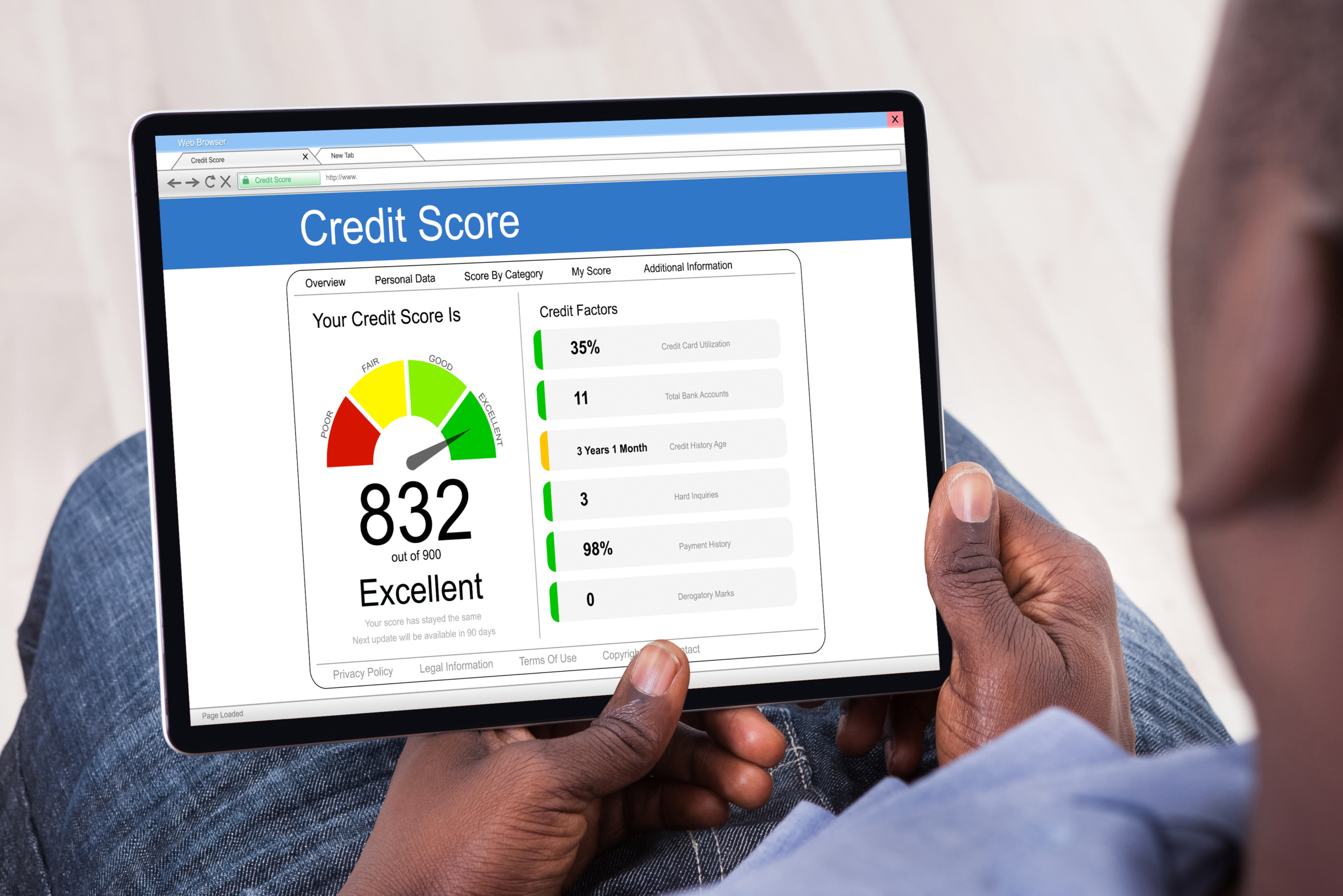
How to build, improve your credit score
Building and maintaining a good credit score helps you get credit and loans at the lowest interest rates, and also can affect your auto and homeowner's insurance rates and whether you can get a cellphone account or rent an apartment or house.

Whether we like it or not, our credit histories and credit scores profoundly affect our financial lives. Banks use our credit files to decide whether to approve us for credit cards and loans, and at what interest rates. Landlords use our credit files to decide whether to rent to us. And insurance companies may, in many states, use credit scores to set our premiums for auto and homeowner’s insurance.
Here are 10 things to know and ways to build and maintain a high credit score:
Pay your bills on time, or even a few days early.
Your credit card account will always be due on the same day of the month. But realize if that’s a weekend or holiday, you may not be able to schedule or send a payment electronically and get it posted that day. So you’ll need to pay it in advance through your bank or your credit card directly online. (You can’t use one credit card to pay another.)
Set up automatic payments for the expected minimum payment for credit cards and loans.
Maybe that’s $25 or $50 or $100. Your car loan might be $312 or your mortgage might be $971 every month. You can set up automatic payments through your bank’s free online bill payment service, and sign up for automatic payment pending alerts. Then when you get your credit card bill, you can modify the payment to pay the full balance due, assuming that’s what you want to do.
Keep your credit card usage below 30 percent of your card’s credit limit.
Remember that what counts is the balance on your last statement, even if you plan to and do pay it in full next month. You should also strive to keep the total balances on all of your credit accounts at or below 30 percent overall with all of your credit cards combined.
Know what goes into your credit report.
Generally, your credit history will include credit cards and loans. It won’t include deposit accounts, debit cards, utilities or cellphone bills, unless one of these goes into collections.
Negative items generally remain in your files for seven years; positive information stays on potentially forever.
Check your credit files and your credit score regularly.
You can and should do this in two ways:
- You quite likely have at least one credit card or bank account that provides you with your credit score online every month. It doesn’t really matter whether it’s a true FICO score, or a variation or a Vantage score.
What you’re looking for is any significant change for an unknown reason. If your score is, say, more than 10 points different in either direction, you need to dig a bit deeper to find the reason. Maybe your statement balance increased significantly because you put a vacation or home improvement on your card and you’re going to pay the balance in full next month. Yes, for this month, that will ding your score a bit. That’s OK.
But if you look at the reasons and it says you have a late payment or new account that you don’t know about, you need to take next steps: get a copy of your credit report and look for mistakes or problems, such as unknown accounts or medical debt that shouldn’t be there. - Even if you don’t spot any big change in your score, you should request copies of your credit reports regularly.
By law, you can get free copies of your credit report once a year – one each from the three major credit bureaus. If you’ve never seen your credit report or it’s been many years, you should request all three at one time, because looking at all three side by side may be able to help fill in some question marks.
You’re looking for mistakes or inaccurate information. Each report will tell you how to dispute issues.
You should go to AnnualCreditReport.com and you can request all three reports there – from Equifax, TransUnion and Experian. Or you can call 1-877-322-8228. Don’t just do an online search for “free credit reports” or you could end up on a scam site. And don’t go directly to the companies’ web sites or you may have to pay or get tricked into signing up for credit monitoring or something else that costs money. Note: Through Dec. 31, 2023, Experian, TransUnion and Equifax will provide all U.S. consumers free credit reports every week through AnnualCreditReport.com.
Your free credit report won’t include your score; you’d have to pay for that. But you can rely on scores from your other accounts, unless you’re getting ready to buy a home.
Know what makes up a credit score.
The baseline credit score is called a FICO score. It’s the score that ranges from 300 to 850. You’ve probably heard about this before.
Your FICO score is calculated with this weighting:
- Payment history – 35%.
- Amounts owed – 30%.
- Length of credit history – 15%.
- New credit – 10%.
- Credit mix – 10%.
Much of this information changes a bit every month, so your score is going to go up or down by a couple of points every month (perhaps like your weight does weekly.)
There are other scores too: variations of FICO such as the Auto Score and the FICO Bankcard Score. These scores may have different ranges; they are designed to be predictive for auto loans and credit cards, for example. There’s also a VantageScore that’s used by some lenders.
If you’re planning to apply for a credit card or loan, you should ask what score model they use and which bureau, if they know. (If your credit files are frozen, and this is a good idea, you’ll need to know anyway which bureaus you should thaw temporarily.)
Don’t apply for new credit cards without a good reason.
Every “hard” inquiry, whether the account is approved or not, will ding your credit score by maybe five or 10 points. They stay on your file for two years.
“Hard” inquiries are for new accounts. “Soft” inquiries or account reviews generally are done by insurance providers or existing creditors to check up on you, for example.
Don’t close any credit accounts.
Unless you have a credit score exceeding 800, don’t close any credit card accounts. It won’t make any negative information disappear and it will always decrease your credit score. Always. This is true because it will reduce your total available credit. And if it’s one of your older accounts, it reduce your average account age, which will hurt you.
Realize the best credit files will have a mix of “revolving” accounts.
This means credit cards, and “installment loans,” generally mortgages and auto loans. Try to avoid accounts that likely will hurt your credit score: rent-to-own accounts, personal loans and payday lenders.
Don’t be fooled by promises to increase your credit score through other means.
Stay away from “services” that promise to help you get a higher credit score. They’re usually scams. There are tools such as Experian Boost, which allows you to add certain phone, utility and subscription accounts to your credit file. It might increase your score by a few points. But even if it works, it will affect only your credit report and scores from Experian. The company says the typical Boost users increases their score by 13 points.
Topics
Authors
Teresa Murray
Consumer Watchdog, U.S. PIRG Education Fund
Teresa directs the Consumer Watchdog office, which looks out for consumers’ health, safety and financial security. Previously, she worked as a journalist covering consumer issues and personal finance for two decades for Ohio’s largest daily newspaper. She received dozens of state and national journalism awards, including Best Columnist in Ohio, a National Headliner Award for coverage of the 2008-09 financial crisis, and a journalism public service award for exposing improper billing practices by Verizon that affected 15 million customers nationwide. Teresa and her husband live in Greater Cleveland and have two sons. She enjoys biking, house projects and music, and serves on her church missions team and stewardship board.
Find Out More

Food for Thought 2024

Is Alexa always listening? How to protect your data from Amazon

Safe At Home in 2024?
